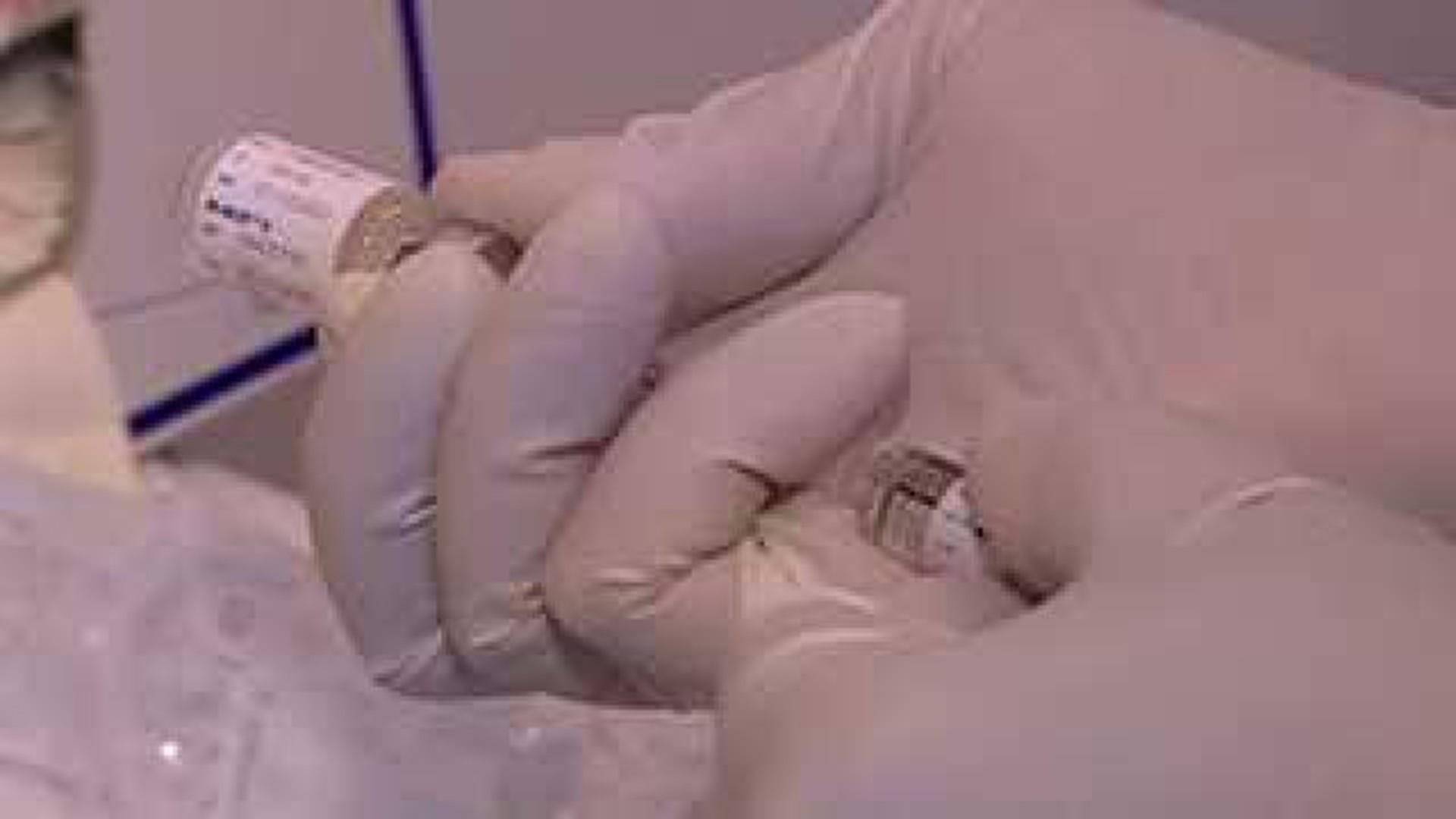(CBS NEWS) A new study published in the Journal of Pediatrics on March 29 confirms that there is no association between autism and receiving many vaccines at an early age.
“The amount of antigens from vaccines received on one day of vaccination or in total during the first two years of life is not related to the development of autism spectrum disorder in children," author Frank DeStefano, director of the Immunization Safety Office of the Centers for Disease Control and Prevention, told NPR.
About one-third of parents worry that vaccines cause autism, and 10 percent of parents refuse or delay vaccinations because they think it is safer than what the CDC recommends. One of the top issues is that some parents fear that their children are receiving too many vaccines on a single day and throughout the first two years of the child's life.
The maximum number of antigens -- the substances in vaccines that cause the body's immune system to produce antibodies to fight disease -- a child can be exposed to by the age of 2 in 2013 is 315. However, in the late 1990s, that number was in the thousands.
Autism and the autism spectrum disorders (ASD) are a group of developmental disorders that cause major social, communication and behavioral challenges. The CDC believes that one out of every 50 children has an ASD.
A previous study published in January 2013 by the Institute of Medicine confirmed that the 24 immunizations that children receive before the age of 2 are not only safe, but also help prevent illness, deaths and hospital stays. The vaccines are safe when they are taken on their own and in conjunction with each other. None of them were linked to autoimmune diseases, asthma, hypersensitivity, seizures, child developmental disorders, learning or developmental disorders or attention deficit or disruptive disorders.
To look at the effect of vaccines on autism specifically, researchers looked at data from 256 children with an ASD and 752 children without ASDs born between 1994 and 1999. They looked at how many antigens the child was exposed to until they were 2-years-old and the maximum number of antigens a kid received in a single day of vaccination. Simply counting the number of vaccines did not suffice because each vaccine had different numbers of antigens. For example, the older whole cell pertussis vaccine created about 3,000 different antibodies, whereas the newer acellular version only creates six or fewer antibodies.
The researchers discovered that the total number of antigens received an the maximum number of antigens received was the same number for children with or without ASD. There was no relationship for kids who had sub-categories of autistic disorder and ASD with regression -- meaning they suddenly lose speech and social skills -- either.
DeStefano said that the results were not suprising because kids encounter antigens all the time in everyday bacteria and viruses.
"It's not really clear why a few more antigens from vaccines would be something that the immune system could not handle," he says.
Geraldine Dawson, the chief science officer for Autism Speaks and a professor of psychiatry at University of North Carolina, Chapel Hill, told TIME that the study was important because it can help provide confused parents who read something conflicting information online with accurate, researched information.
"The concern around vaccines has been a very significant issue. Many parents are now deciding to wait or space out vaccines. There has been a concern that when parents are worried about whether vaccines are associated with autism that they are going to choose not to vaccinate their child," says Dawson. "That's one of the reasons we see this as very good news, because we hope this will reassure parents that the number of vaccines your child received during the first couple years of life is not associated with a risk in developing autism."
Dawson, who was not involved in the study, said scientists are especially interested in children with autism who experience regression. This typically happens around the child's first or second birthday, which is around the same time they receive vaccines.
"This study looked to see if for even this sub group, whether they are more at risk, and again no connection was found," says Dawson.
© 2013 CBS Interactive Inc. All Rights Reserved.

